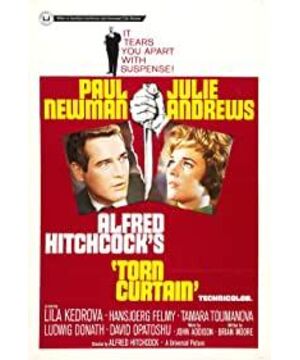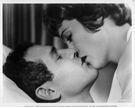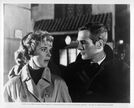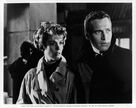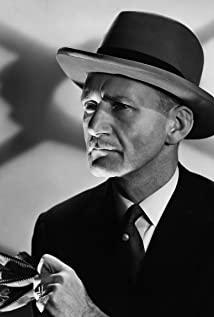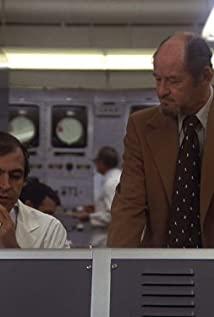as the plane landed in Berlin, problems appeared intensively:
1. The time of identity revealing and the killing of bodyguards was too early, and most of the subsequent plots were almost distorted.
Although Hitchcock did not overestimate the audience’s IQ, he could always cause some troubles at a relatively appropriate moment, such as taxi drivers reporting promptly after reading the newspaper; agents rushed into the lecture theatre to terminate the meeting... but they only It’s a passive response, which can’t solve the most core logical problem at this moment: if you are the East German authorities, you are secretly visiting relatives in the countryside when you encounter a recently renegade American scientist (the magical secret service department does not know this person. Are there relatives in the local area?), what if the bodyguard who followed him disappeared completely? Needless to say, at least I was under house arrest for investigation!
But the protagonist is locked up, how can the story continue? At this time, the iron curtain can no longer be iron, but must be soft. Therefore, it is basically impossible to see further down. Some female doctor stretched her leg and stumbled; some hill confided the truth to her fiancée... The most intolerable thing is that the teachers and students of the whole hospital are looking upstairs and downstairs, but they don't know what the person they are looking for looks like. But even so, it's unbelievable that the three of them ride away so easily.
2. Too much reliance on organization and too few personal shining points.
Most of the entire escape process was arranged by underground organizations. What our Mr. Paul Newman needs to do is to give full play to his specialties: frowning and worrying. And this obviously has a huge gap with the audience's psychological expectations for such films. What they want to see is that big-name celebrities solve problems by themselves. Even if it doesn't have to be every time.
But let's not say, the scene of the theater getting out of trouble gave Newman a chance to show his face. It's just that the technique is a little clichéd, and the inspiration is also a bit perfunctory. If I were a choreographer, I would consider letting the lighter be used again (the previous time was black humor. The bodyguard could not fight, but Newman could do it): In a hurry, I accidentally touched the one in my pocket...
3. On the emotional clue, Hitchcock fooled the audience.
I thought there would be a spy love triangle similar to "Beauty's Tactics", because in many paragraphs, close-up shots clearly explained the goodwill of the East German professor with glasses to Andrews. But when the film is over, you find that these shots are meaningless, and even the role of the professor of glasses is redundant. He neither has the external charm of attracting Andrews, nor does he have the authority to intervene in Newman's core tasks. And this, in turn, also caused Andrews's role to lose room for development. She can't pretend to empathize in order to avenge Newman's indifference without knowing it, nor does she need to bear the pressure of paying affection or even greater sacrifice in order to save Newman from danger after knowing it-at most it is just two dances with the professors. That's it.
4. Humor is not the place.
The bodyguard who rides a motorcycle fits his "badass aesthetic": it's bad from the inside out, and it's also a drama! But he was helpless to be killed early. The fighting on the farm is impressive, but the stylization is excessive, and the credibility is insufficient: the neck is strangled, and he is still jumping out. , You can level you with one hand!" Why not just shout for help in your native language? Isn't the taxi driver outside the house? There is also the attacking tactics of women's tricks... These black humours seem to be incompatible with the overall style of the film and Paul Newman's methodical performance.
View more about Torn Curtain reviews


